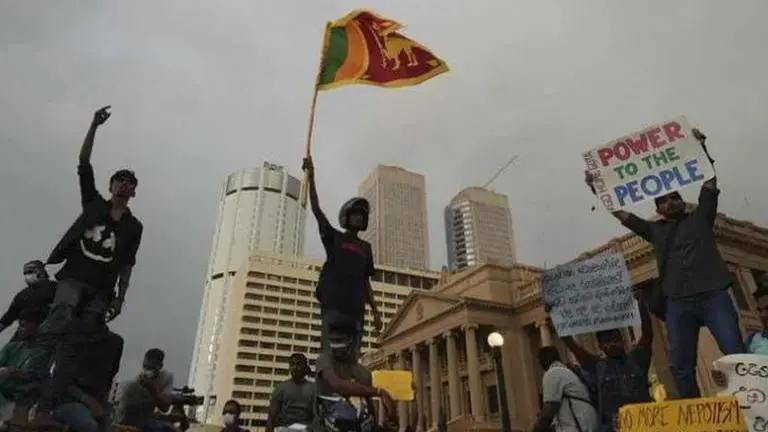Updated 21 May 2022 at 13:18 IST
Sri Lanka revokes state of Emergency instated second time to tackle worst economic crisis
State of Emergency had given the powers to security forces to arrest those suspected of flaring the violence for long periods in defiance to the government.
- World News
- 2 min read

Sri Lanka on Friday, May 20 revoked the state of Emergency that was imposed earlier this month to tackle the ongoing economic crisis, which has prompted angry citizens to flood the streets and revolt against the government. The decree that was instated after trade unions staged a nationwide strike has ceased to remain in effect from last night, Friday. The attorney at law in the Supreme Court of Sri Lanka Dr. Prathibha Mahanamahewa declared that the emergency regulations were revoked after the decision was unanimously reached in Colombo's parliament for approval, Sri Lanka's state-affiliated press reported.
Sri Lankan President Gotabaya Rajapaksa had declared the second state of Emergency countrywide on May 6 exercising the powers vested in him by the Constitution. Rajapaksa justified the Emergency orders saying that the move would ensure political stability, which he deemed necessary to handle the worst socio-economic crisis since the country's independence.
Angry citizens blamed ruling government for mishandling debt-heavy economy
In the face of the worst economic meltdown, dozens of MPs walked had walked out of the ruling coalition last month, forcing Rajapaksa to dissolve his Cabinet. The Sri Lankan lawmakers blamed the ruling government's handling of the debt-heavy economy for wiping clean the government's foreign reserves and causing uncontrollable inflation.
Sri Lanka's economic crisis had sparked violence, that had jeopardised public safety and disrupted the supply chain of essential services across the country. President Gotabaya Rajapaksa had made the proclamation via the Gazette Extraordinary, and declared the Public Emergency in Sri Lanka under Public Security Ordinance despite heavy criticism from the lawmakers. A spokesperson for Gotabaya Rajapaksa said that the government was forced to invoke the tough laws to “ensure public order."
Advertisement
The state of emergency had also given the powers to security forces to arrest those suspected of flaring the violence for long periods in defiance to the government orders without any judicial supervision. The angry Sri Lankan protesters demanded Rajapaksa's resignation as they blamed him for spiralling the nation into the financial and economic turmoil. Sri Lanka's 85,000-strong police force ensured public law and order as citizens attempted to storm the government and political buildings.
“The president used his executive powers to invoke emergency regulations to ensure the maintenance of essential services and public order,” the spokesperson had reportedly said.
Published By : Zaini Majeed
Published On: 21 May 2022 at 13:18 IST
